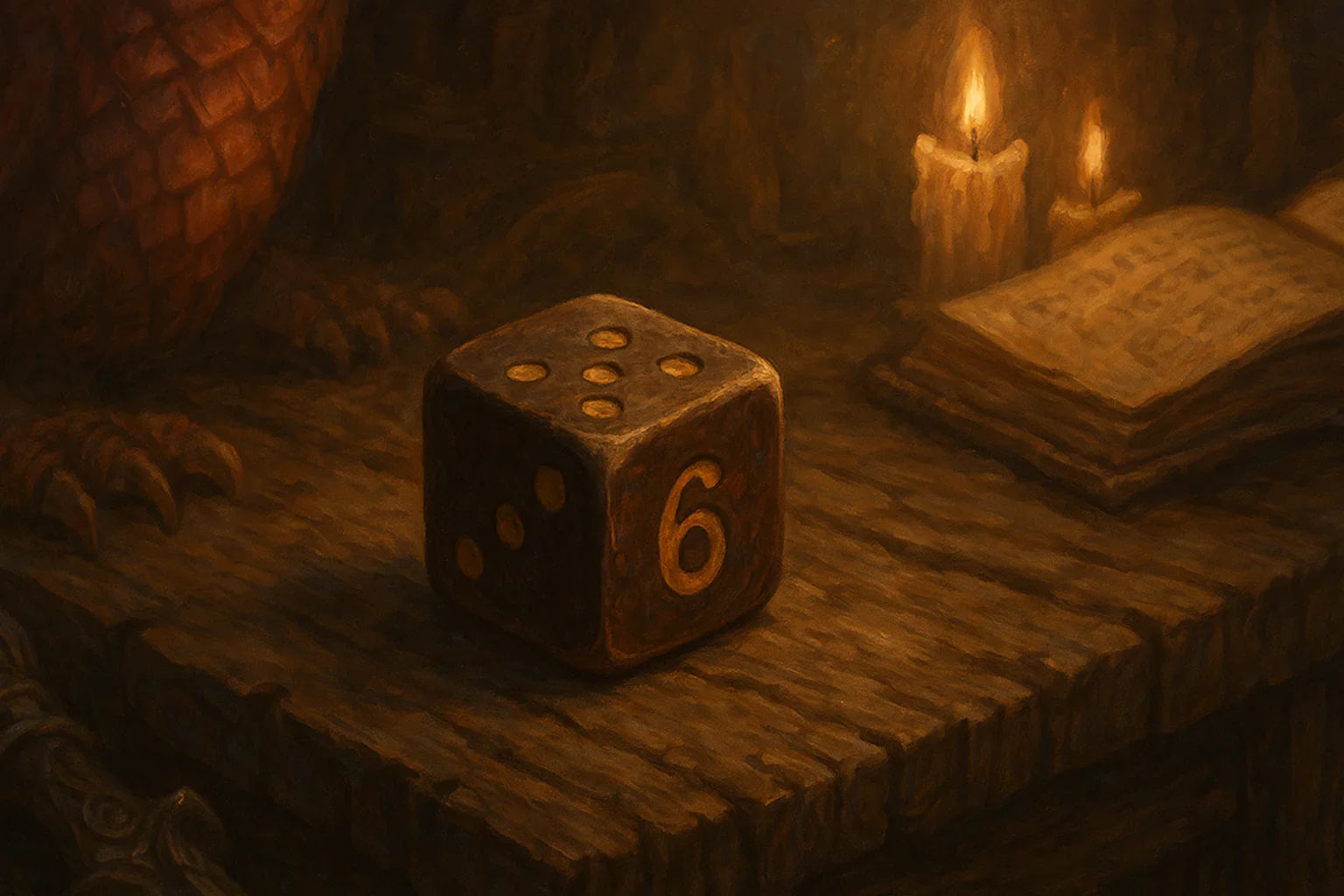
Single Dice: When One Die Is All You Need (or Is It?)
Updated on: 2025-12-18
Let’s talk about single dice. Yes, just one lone die. You might be wondering, why would anyone need to buy or use a single die when most games use a whole set of dice? Well, there are plenty of scenarios! Maybe you lost your favorite d20 under the couch (it happens to the best of us), or perhaps you need an extra d6 because your fireball spell in D&D uses eight of them at once. Or maybe you’re that collector who has to have that one gorgeous stand-alone die as a showpiece. In this fun and conversational post, we’ll explore the world of single dice – why you might want them, how to use them, and tips for integrating that one special die into your gaming. New players, veteran dice goblins, and curious gift shoppers, this one’s for you.
Why Would You Need a Single Die?
At first glance, buying a single die might seem odd. Most of us get dice in sets, right? But here are a few reasons going solo can make sense:
Replacing a Lost or Damaged Die
-
We’ve all been there. One moment you’re rolling your dice, the next moment your trusty d8 goes missing (maybe the cat swatted it away, maybe it’s hiding in a shadowy corner). If you lose a die from your set, you don’t necessarily want to buy a whole new set just to fill the gap. Being able to get a single replacement die is super handy. Similarly, dice can occasionally get damaged – perhaps a heavy metal die chipped your resin d4, or numbers faded from heavy use. Replacing a single die keeps your favorite set complete without breaking the bank.
Extras for Gameplay
-
Some games or situations require multiples of the same die. In D&D, for example, if you cast a spell like fireball, you need to roll 8 six-sided dice (8d6) for damage. You can roll one six-sided die eight times, but it’s much more satisfying (and faster) to roll a handful of d6s all at once and watch the carnage unfold. Many players accumulate extra d6s or d8s for exactly this reason. Another case: the D&D advantage/disadvantage mechanic has you roll two d20s at once and take the higher or lower. It’s convenient to have a second d20 of a similar type for these rolls. Buying single dice allows you to customize which extras you have – maybe you want three extra d6 and one extra d20 – without buying multiple full sets.
Customized Dice Pools
-
Outside of D&D, some RPGs use dice pools where you roll several of the same type of die. For example, Shadowrun (a cyberpunk RPG) is famous (or infamous) for making you roll a fistful of d6s – sometimes 10, 15, or even 20 at a time! If you’re playing Shadowrun or other games that use lots of one kind of die, you might want to purchase a bunch of individual dice of that type. Having 20 matching d6s can be quite a flex at the table (and it saves time re-rolling a few over and over). Even some board games might require extra dice if you want to upgrade components or replace worn-out ones.
Collectible Single “Showpiece” Dice
-
Let’s face it, some dice are just so cool or beautiful that even if they don’t come in a set, you might want one as a keepsake. Perhaps it’s a giant handcrafted d20 with inlaid metal runes that costs a pretty penny – you might not buy a whole set of those, but owning one to mark special occasions (like rolling for a character’s critical moment) can be appealing. Some people collect unique single dice from conventions or special events, like a commemorative die with a convention logo or anniversary date. These single dice become souvenirs and conversation pieces. For example, there are limited-edition single dice with logos of popular shows or games – a single arcane d20 with a special emblem could be a cool desk ornament and a functional die.
Dice Superstitions & Needing a “Fresh” Die
-
Gamers can be a superstitious bunch with their dice. If a die (particularly a d20) is rolling badly for you in a night (nothing but 1s and 5s…ugh), you might retire it and switch to a different die. Some Dungeon Masters keep a stash of spare single dice to loan players who are having a “cursed dice” night or to use for rolling monster attacks (so as not to mix them with player dice!). In these cases, having a few extra singles around is helpful. Plus, if one player forgot their dice, lending them a mix of singles gets them through the session.
Teaching or Prototyping Games
-
If you’re creating your own game or teaching someone, sometimes you only need a specific die. For instance, teaching a kid basic probability or doing a classroom activity – you might just need a bunch of d10s or a single d20 for demonstration. Rather than buying whole RPG sets, grabbing individual dice is more practical. Also, educators have been known to use single polyhedral dice for math games (like using a d12 to practice multiplication tables up to 12, etc.).
So yes, there are plenty of valid reasons to seek out a single die!
Buying Single Dice vs. Dice Sets
Traditionally, dice were sold in complete sets, especially the fancy RPG dice. But we know that sometimes you just lose one. That’s why we make it easy to get a single replacement die, no need to buy a whole new set. Just reach out to us, and we’ll help you find exactly what you need. It just makes sense. But as the gaming community grew, many retailers and online shops started offering dice “à la carte.” In fact, Dice Envy (a popular dice retailer) noted that having the ability to buy a single die is extremely helpful.
When considering buying single dice, keep in mind:
Availability
-
Not every dice shop sells singles. Some specialize in sets only. However, many do – including game store bins where you can rummage through assorted loose dice. Online, you can often find sections for individual dice. For example, some sites have a “Build your own set” feature where you pick one d4, one d6, etc., possibly mixing colors. This is heaven for those who want a rainbow set or to replace certain dice.
Matching Your Set
-
If you’re replacing a lost die from a set, you might want the replacement to match. This can be tricky if your set is out of print or from a specific brand. You may need to contact the manufacturer or scour trading communities. In some cases, you might not find an exact match – then it’s a personal call if a similar color die is “close enough” or if you’ll retire the set and get a new one. (Some hardcore collectors will only use a perfectly matched set – others mix and match freely.)
Mix-and-Match Style
-
On the flip side, some people love deliberately mixing dice. Who says your set has to all look the same? You could curate a set where each die is unique and from a different set/theme – a kind of eclectic, personalized set. Buying singles is a way to achieve that. For instance, you might choose a fiery red d20, a jade green d12, a speckled blue d10, etc., ending up with a multicolored ensemble that’s truly yours.
Cost Considerations
-
Single dice often cost a bit more per die than if you bought in a set (bulk is cheaper). But the difference is usually small unless you’re dealing with expensive materials. A single acrylic die might be $1 or less, whereas a set of seven might be $6-10 (so slightly cheaper per die in the set). For specialty dice (metal, gemstone), you might pay a few dollars per single die, which can still be worth it if you don’t want the full set. Just keep an eye on shipping costs if ordering online – sometimes it’s more cost-effective to bundle a few singles or add them to a larger order.
Where to Find Singles
-
Many local game stores (LGS) have a jar or tray of loose dice for sale – often you’ll see a sign like “$0.50 each” or “3 for $1 for d6s” etc. These might be leftovers or bulk dice from manufacturers. Online, shops like Runic Dice focus on premium sets, but you might contact their support if you desperately need a single (they might help if they have extras lying around). There are also specialty websites that sell only individual dice and dice parts. And as a last resort, community marketplaces or forums sometimes have folks willing to part with a single die (maybe they got mismatched ones in a grab bag).
Using Single Dice in Your Games
Okay, so you’ve got an extra single die (or a few), how do you incorporate them seamlessly?
For Replacement
- If it’s replacing one in your set, just slide it in. Maybe give it a few test rolls to make sure it’s not wildly different in weight or balance (most likely it’s fine). Psychologically, it might feel different if the color stands out – some players get slightly disoriented if their set isn’t uniform during play. If that’s you, consider painting the replacement to match (there are guides on inking dice) or just roll with it (pun intended) and tell yourself it adds character to your set.
For Extra Firepower
- For those times you need to roll a bunch of the same dice (like multiple d6s), having extras means less re-rolling. Simply grab all the dice you need, and roll them together. It can actually make the game more cinematic – handfuls of dice hitting the table feels epic. Just make sure you have enough space to roll them all without knocking over minis or snacks. Some players carry a little stash of extra dice separate from their main set for exactly this reason.
The Lucky Single Die
- Perhaps you have one die that is “lucky.” It could be a single that wasn’t part of a set – maybe a friend gave it to you or you found it at a convention. There’s nothing wrong with swapping it in when you feel the need. Some DMs even have a tradition: they have a special single d20 reserved for critical moments (like a dramatic boss attack or an important saving throw by a player). They bring it out with a flourish – “time for the big die.” It adds a bit of theater to the game. If you have a super cool looking single die, you can do this too. It keeps players on their toes when you suddenly pick up that distinct die – they know something important is happening!
Mixing Sets
- As mentioned earlier, mixing and matching can be fun. If each of your dice is unique, when you roll damage you can say “the blue die is fire damage and the red die is lightning damage” if splitting damage types, for instance. Or just enjoy the riot of colors. One of my own D&D characters uses a set where every die is a different style – because in my headcanon, he collected each die from a different adventure. You can make little stories like that.
Storage for Singles
- One thing to be careful about – single dice have a way of wandering off if you’re not organized (since they don’t have a dedicated spot in a set case). If you start accumulating loose dice, get a small dice bag or box to keep them in so they don’t become goblin loot under your furniture. You could even have a “spares” pouch separate from your main set pouch.
Gift Idea: The Single Die Gesture
If you’re buying for a friend who’s into D&D, a single very special die can be a great gift. Maybe they have plenty of sets, but do they have a hand-crafted wooden d20 made from ancient oak? Or a metal d6 that doubles as a pendant? A single exquisite die says “I know you love dice and I wanted to get you something unique.” It can also be a symbolic gift: giving someone a beautiful d20 could be wishing them good luck in all their rolls (and adventures).
There are even cute ways to present it – e.g., in a little ring box as if you’re proposing (to play more D&D, of course!). I’ve seen gifts where someone gave a single giant d20 to a DM with the numbers replaced by “Thank” (20) and “You” (1) to say “Thank you” – quirky but sweet.
The “Dice Goblin” Perspective on Singles
We’ve hinted at dice goblins – those of us who gleefully hoard dice. For a dice goblin, buying singles is just another way to feed the hoard. In fact, rummaging through random dice bins at conventions or stores for interesting singles is like a treasure hunt. You might find an out-of-print marble style d10 from the 90s or a weirdly misprinted d20 that looks cool. These become prized oddities in the collection.
If you identify with this, then you already know: one can never have too many dice. Even that lonely die that doesn’t match any set must be adopted and given a home. After all, every die deserves a chance to roll a nat 20 and change a story, right?
Jokes aside, collecting single dice can be a delightful mini-hobby. Some collectors try to get one of every color combination possible. Others focus on a type (like “I want a single of every Lab Dice limited color” or “I collect only d20s with unique fonts”). The possibilities are endless.
Conclusion: Sometimes, One Die Is Enough
While most of the time we talk about dice in sets, it’s clear that single dice have their own little niche in the tabletop world. From practical gameplay needs to sentimental keepsakes, a single die can be a big deal (pun fully intended!).
If you find yourself in need of one, don’t hesitate – scoop that single die up. And if you’ve never thought about it before, perhaps now you’re eyeing your dice and noticing that one of them is getting a bit worn or perhaps you could use a second d20 in your next game session.
Ready to single out a special die? At Runic Dice, we craft dice sets with love, while we sell primarily sets, each die is made with care, so you know any single die from one of our sets is top quality too. If you ever need a replacement or an extra, reach out to us, we might have a way to make it happen. Or consider grabbing another full set (we admit, we’re enablers) – having more dice means more “singles” to choose from when you need that perfect roll. Either way, may your rolls be lucky, whether they come from one die or a dozen!
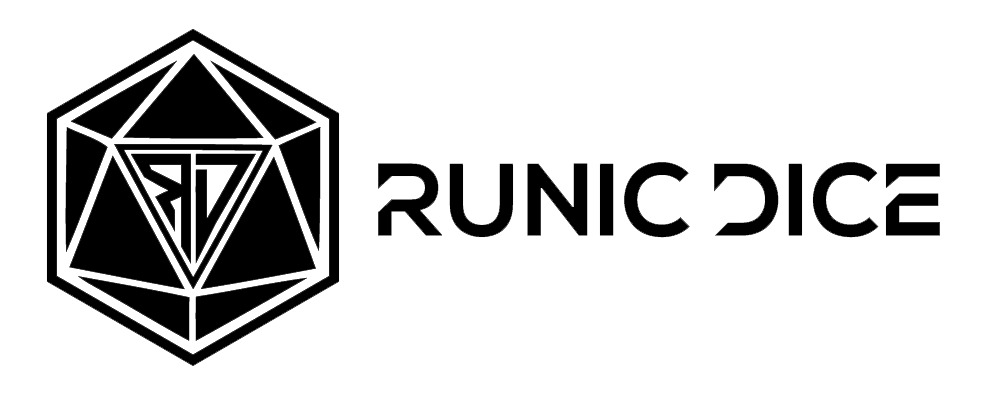



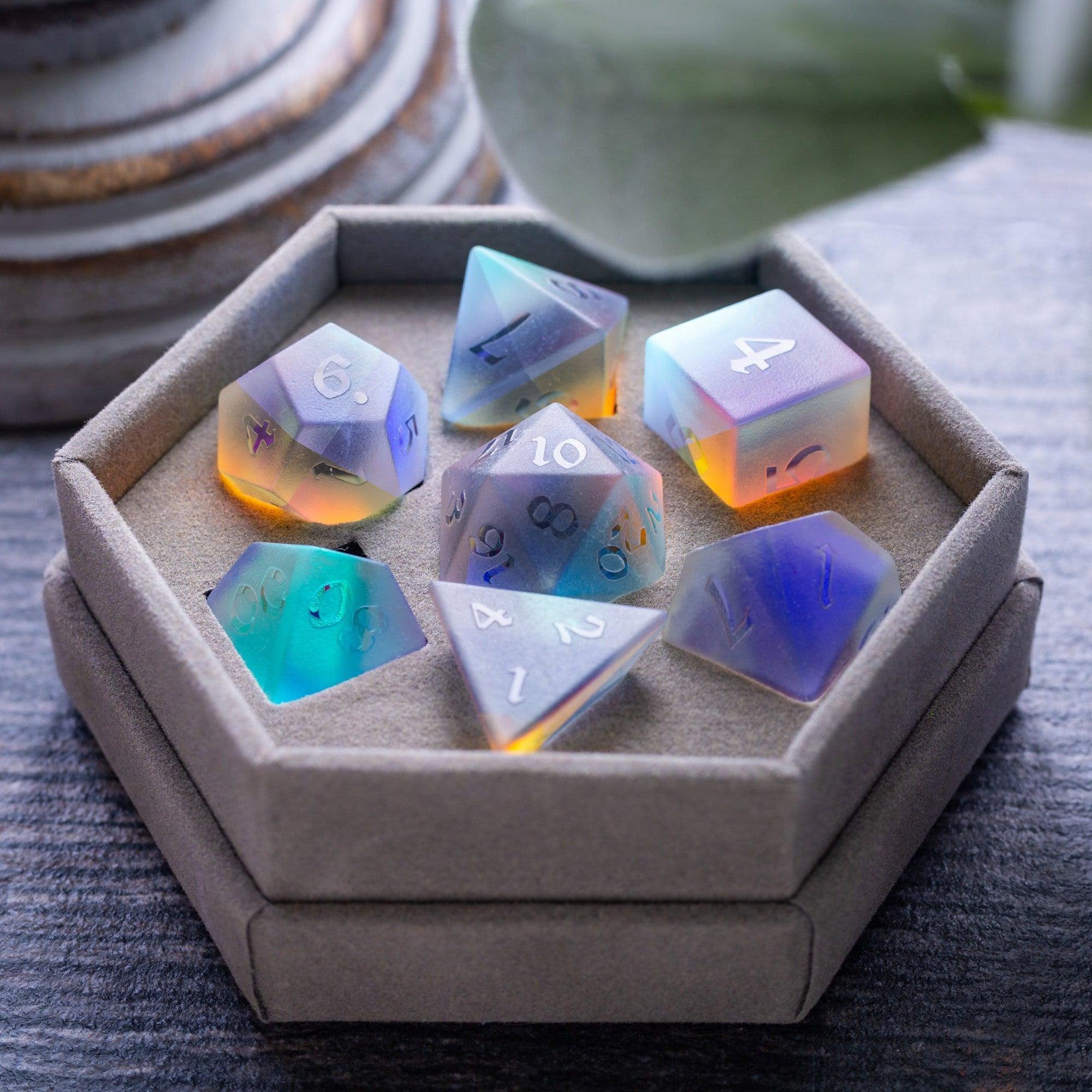
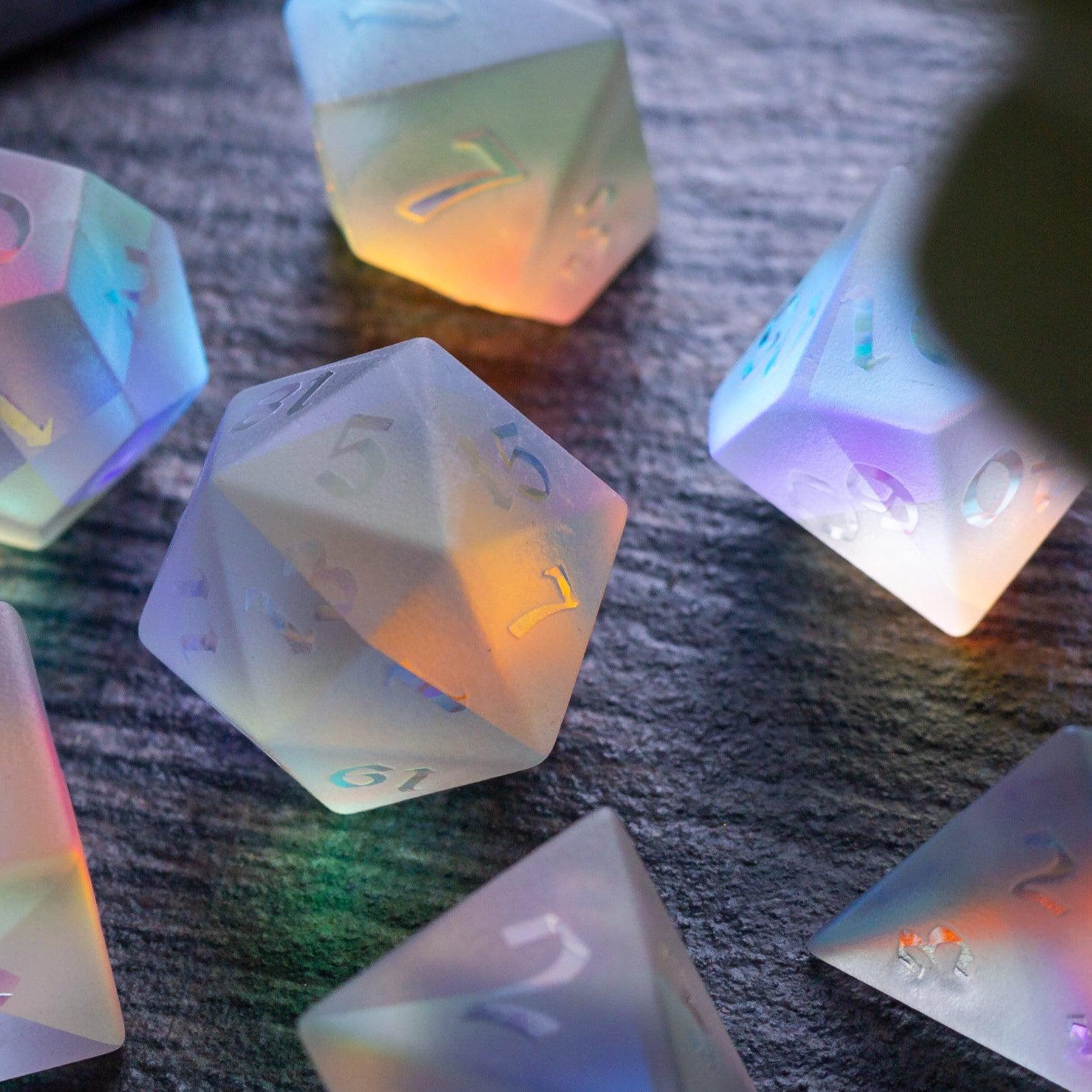
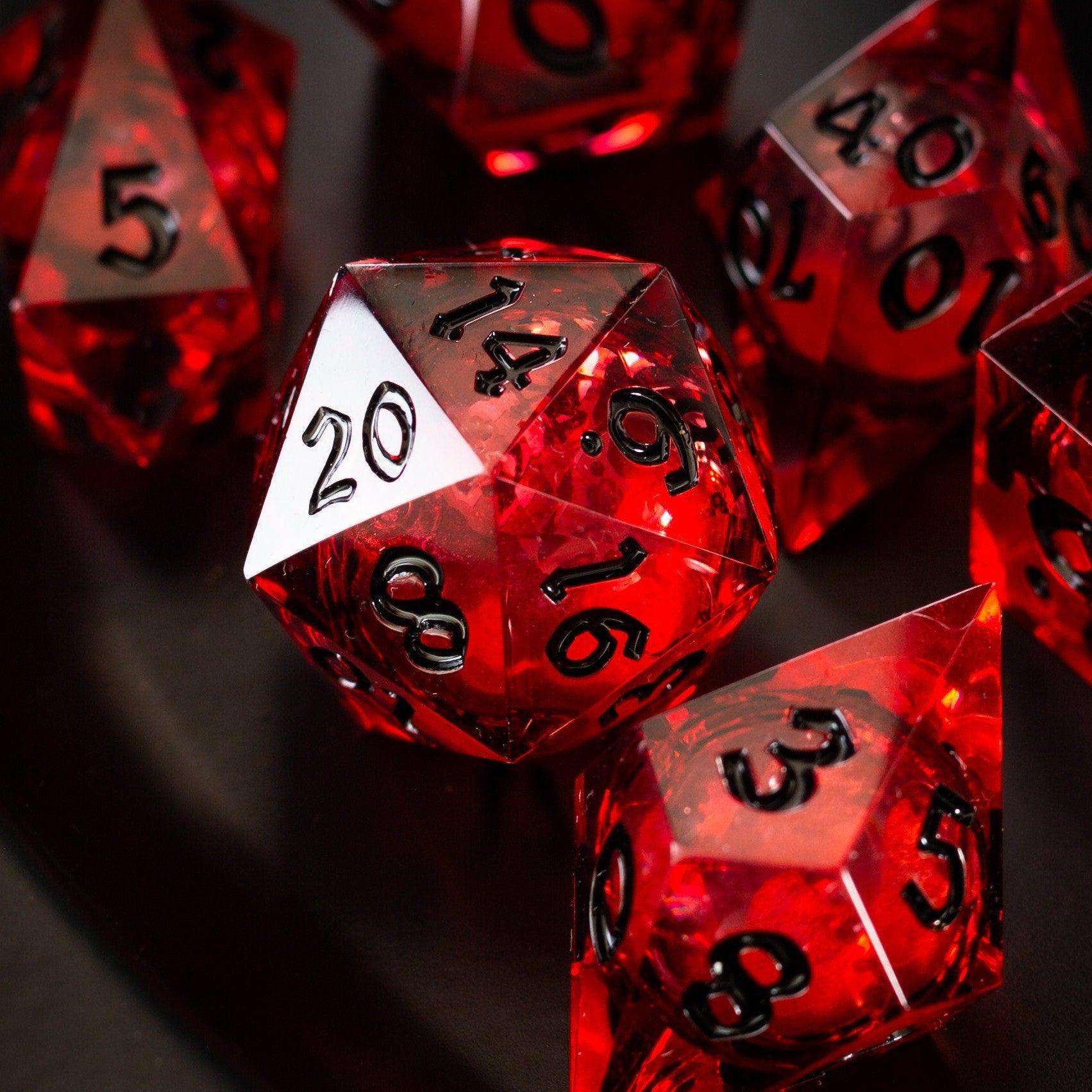
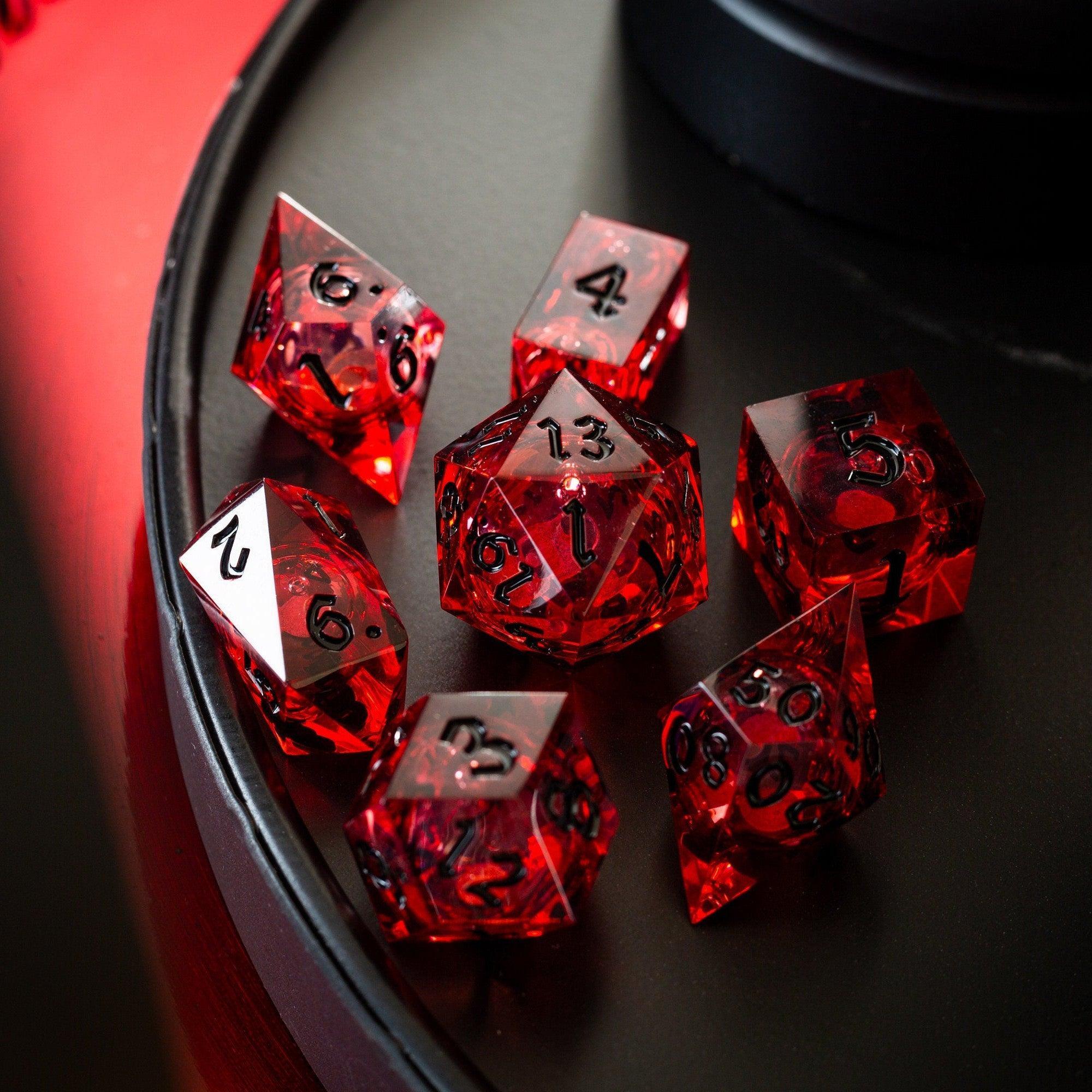
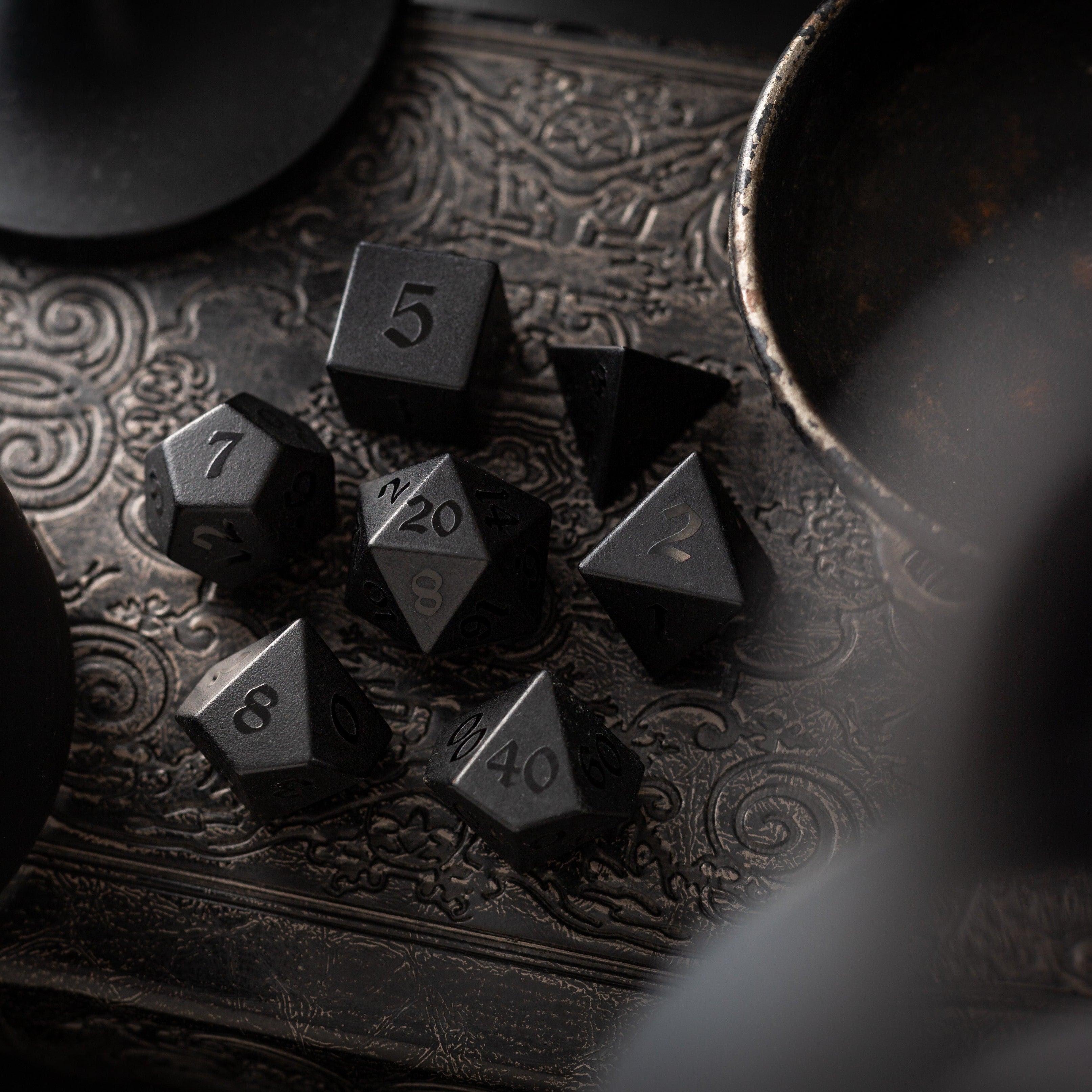
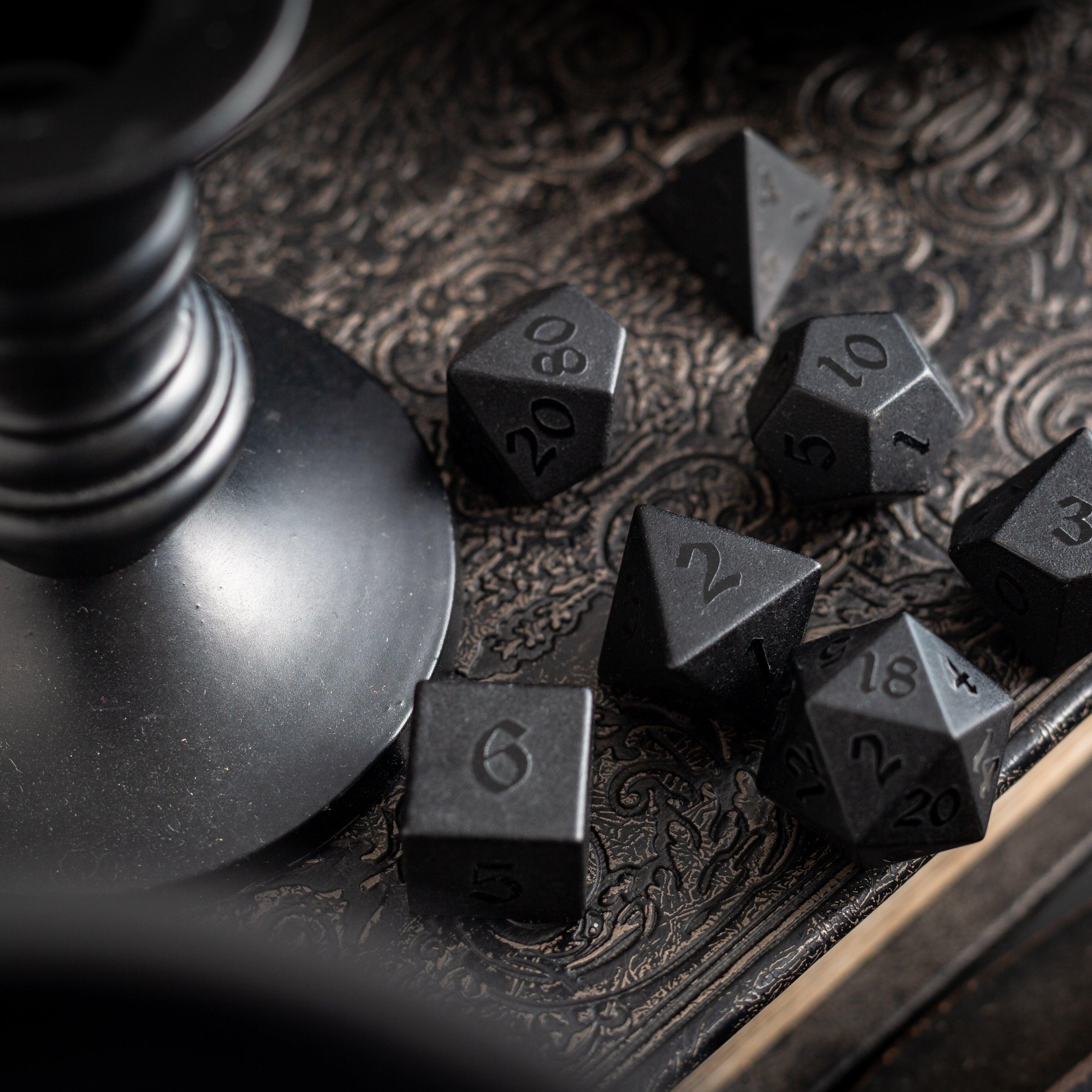
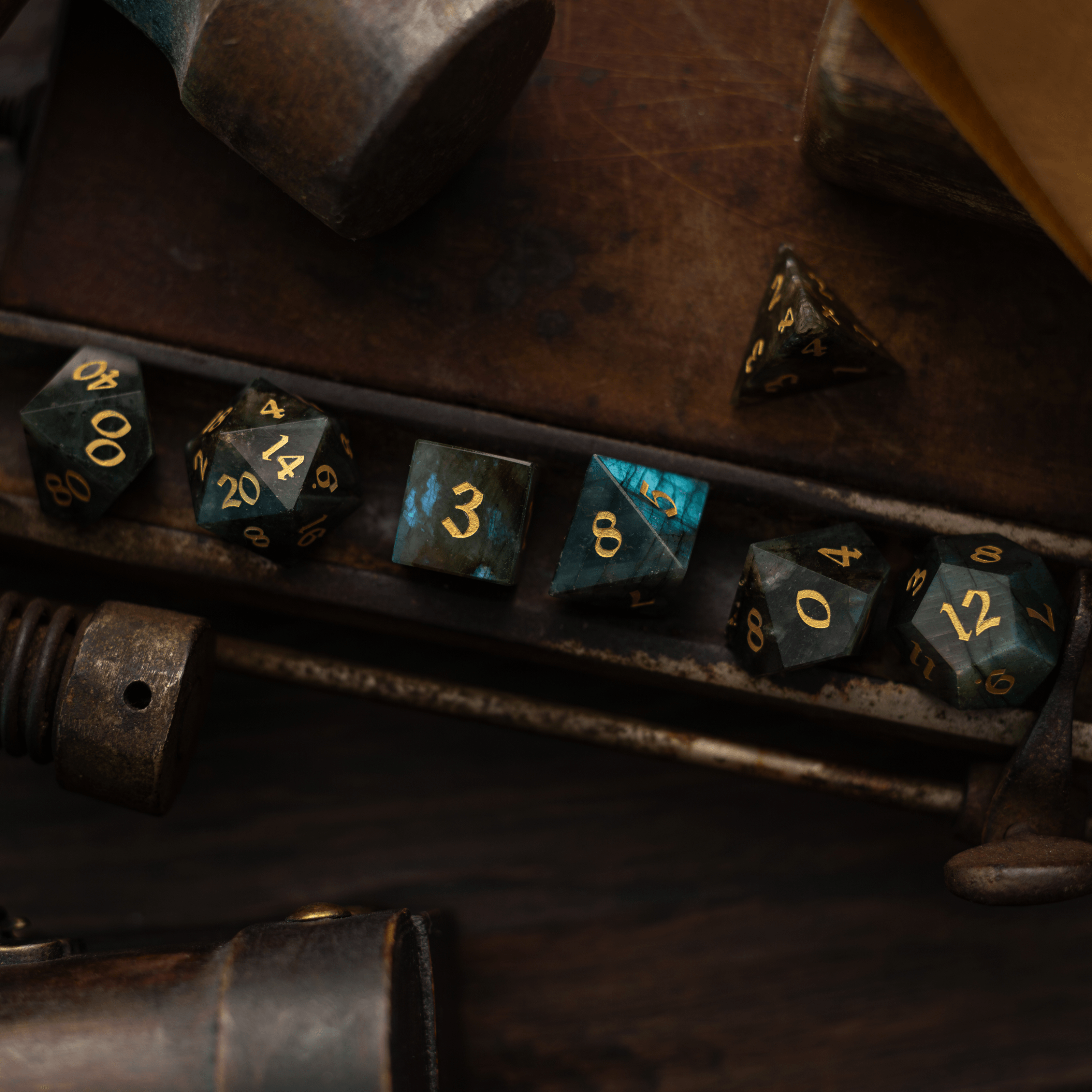
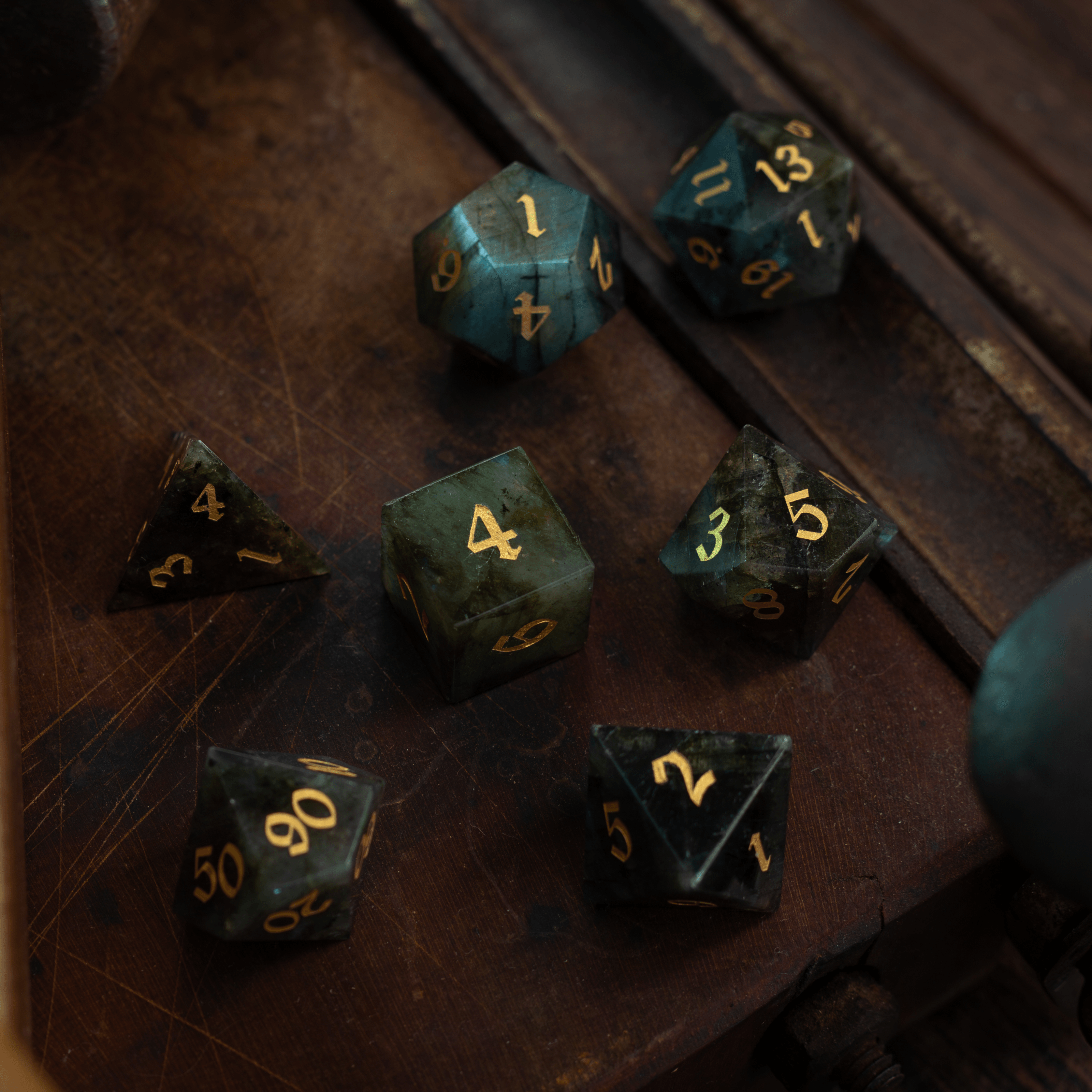
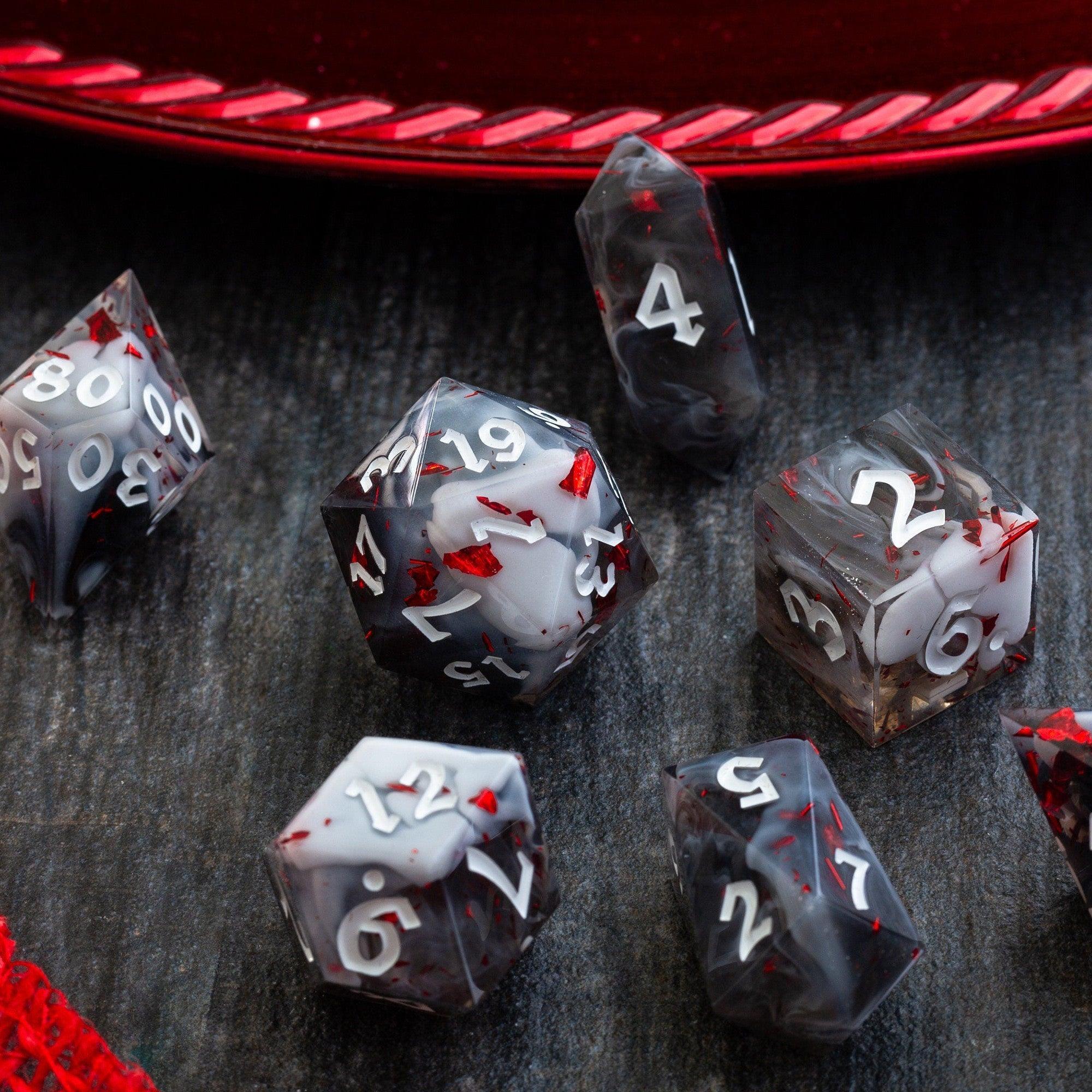
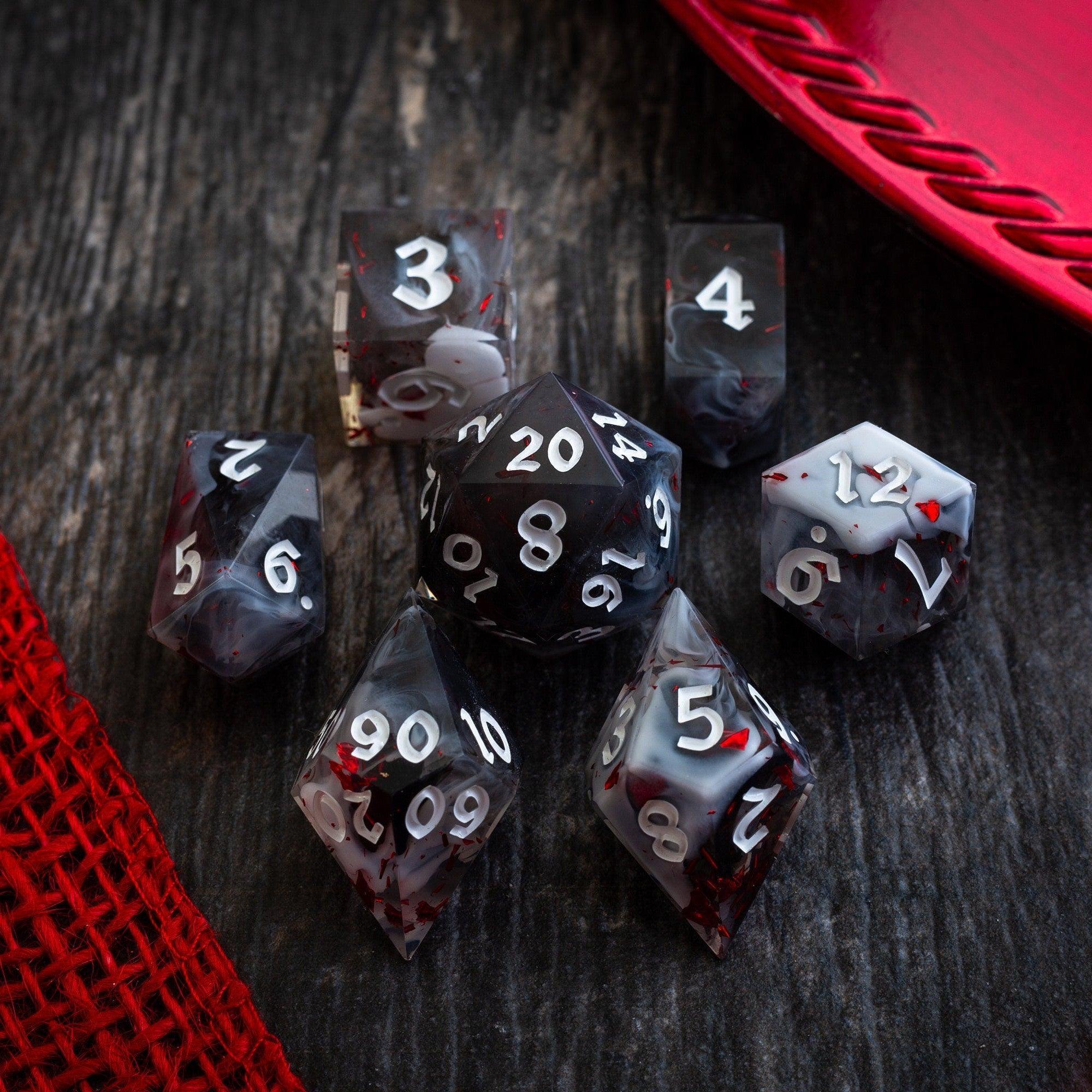
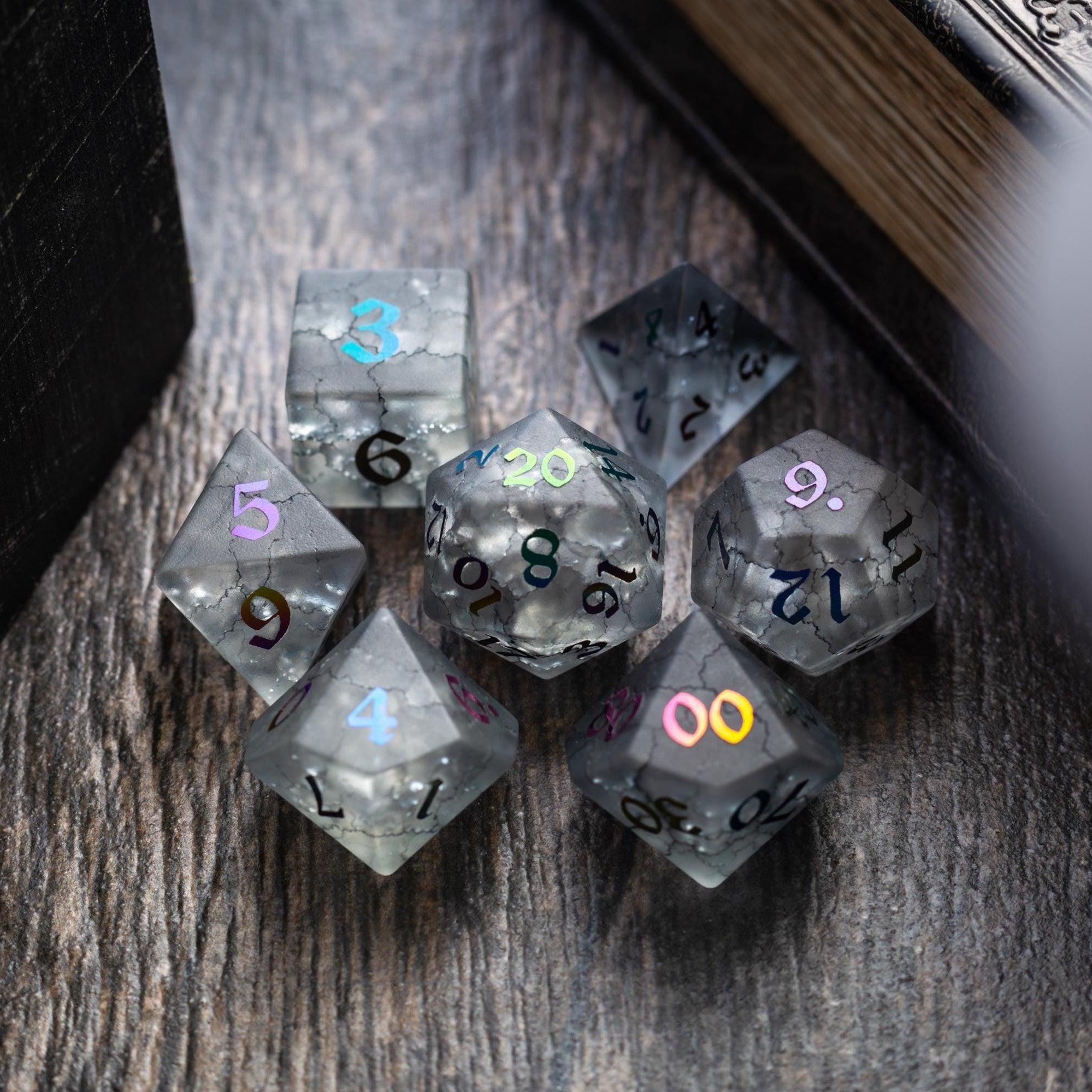
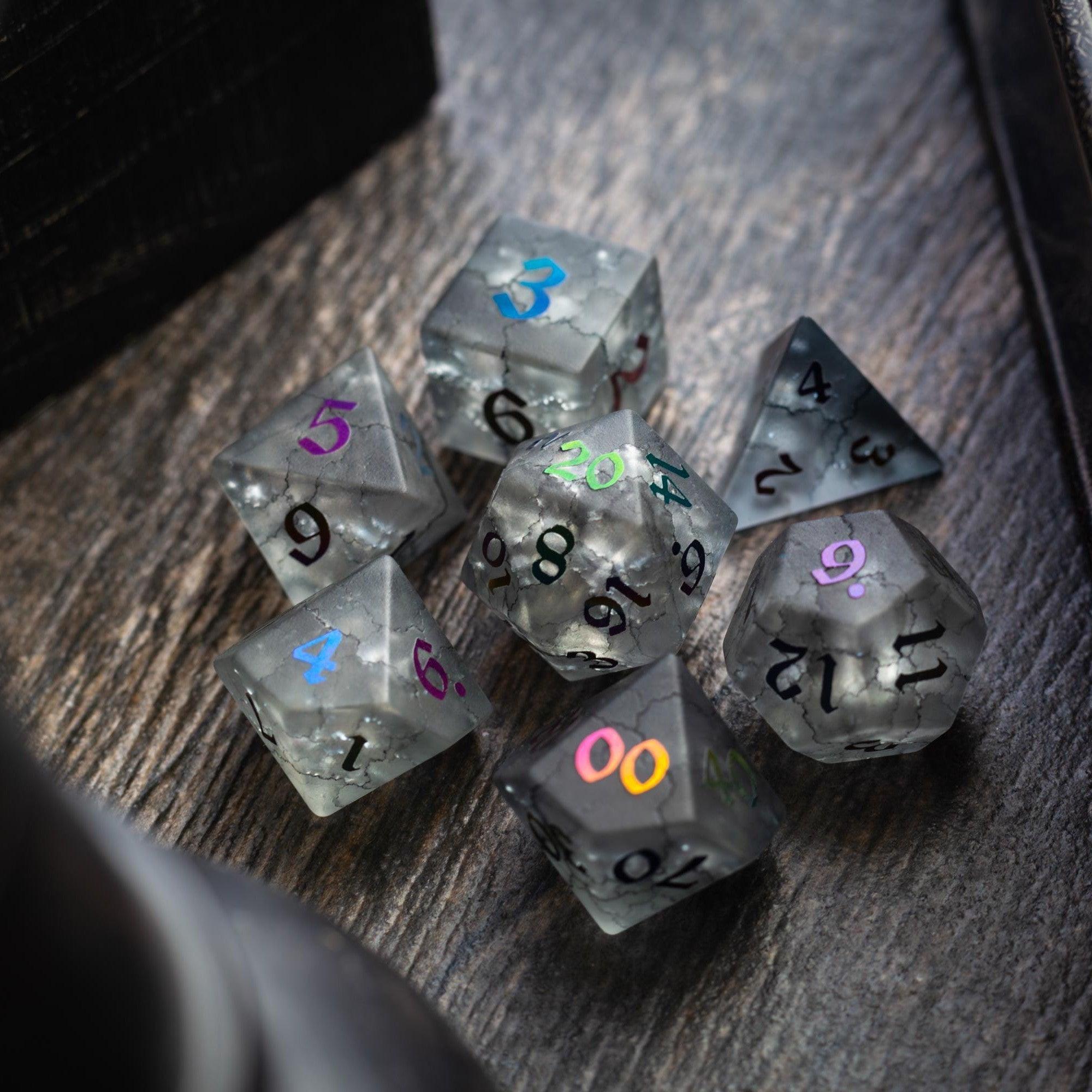
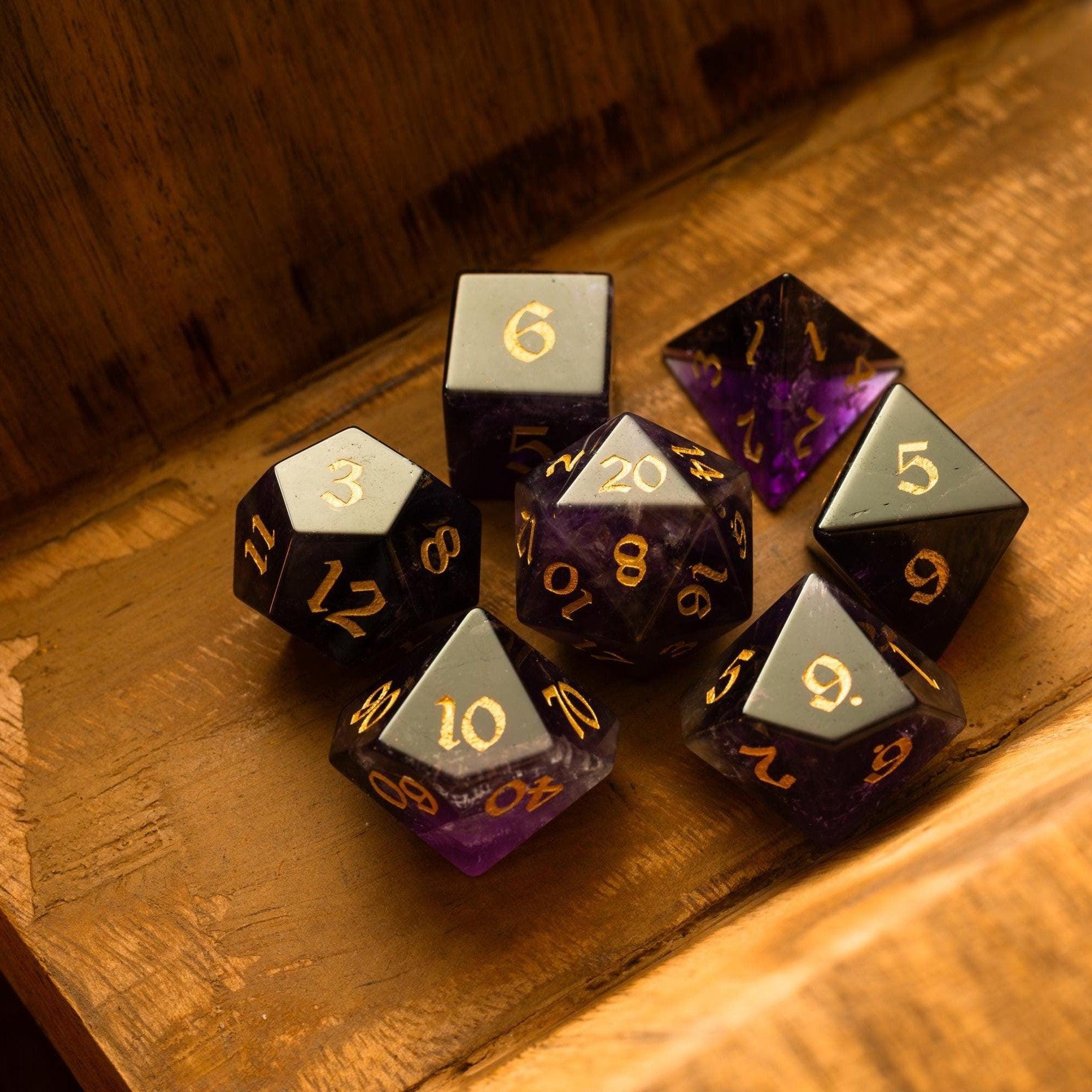
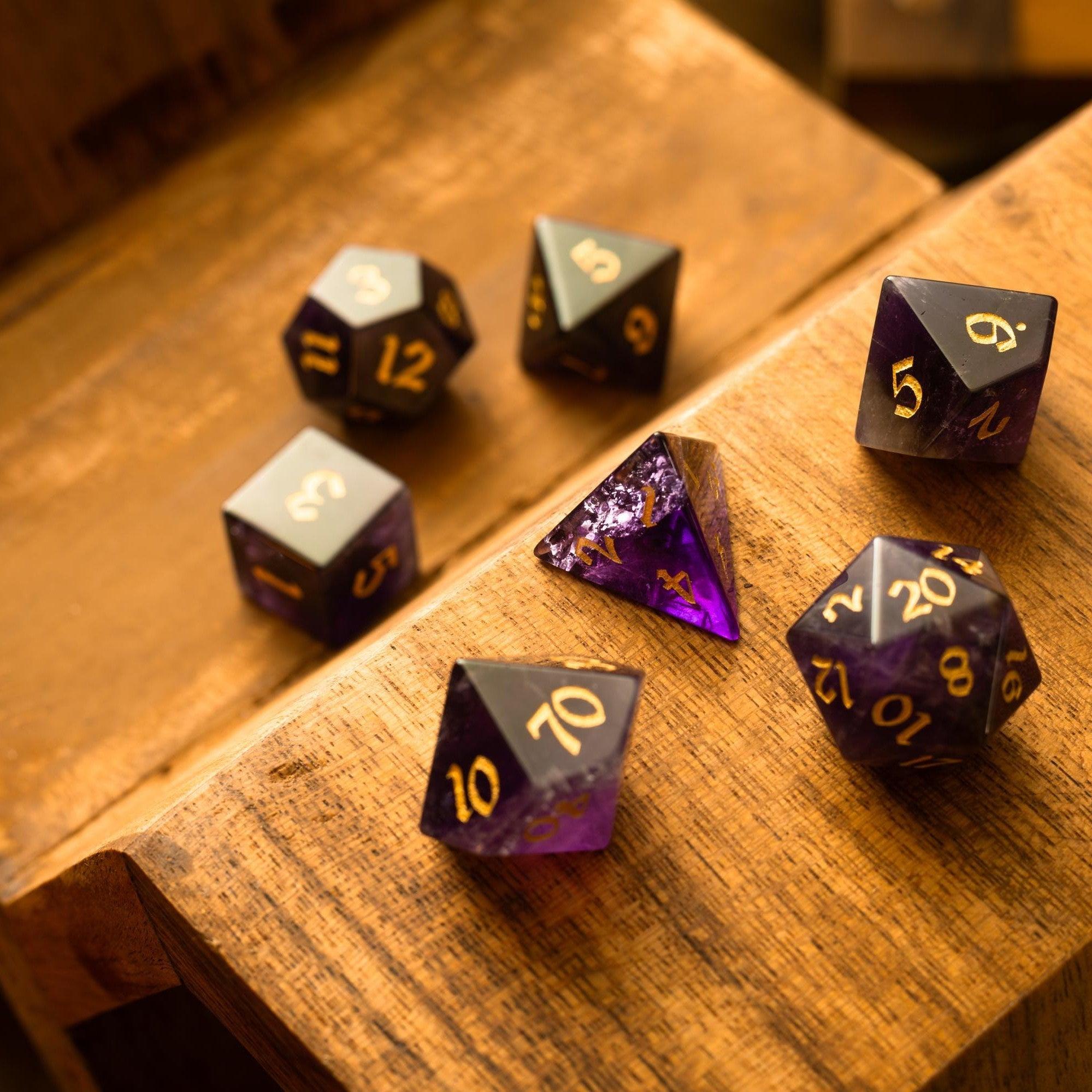
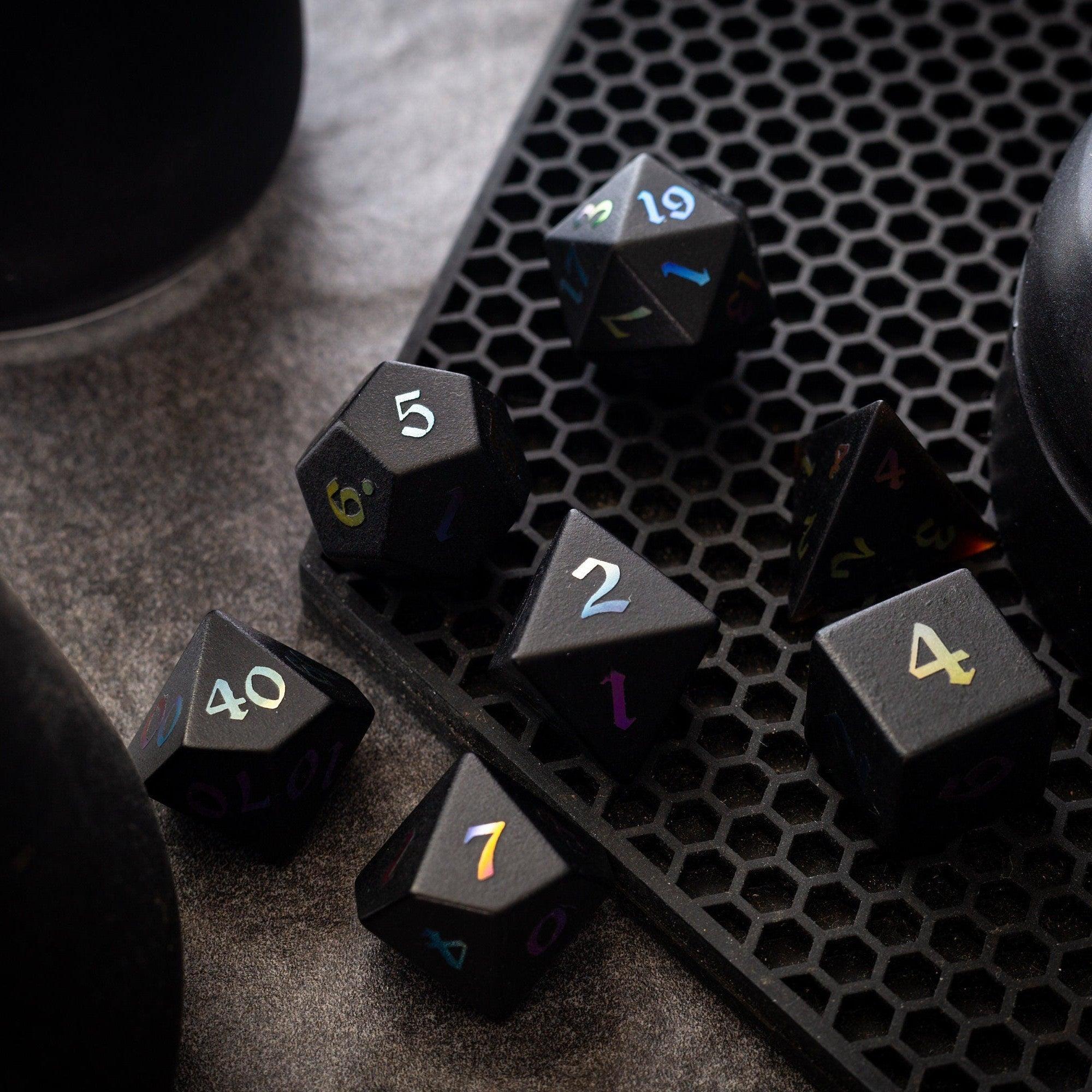
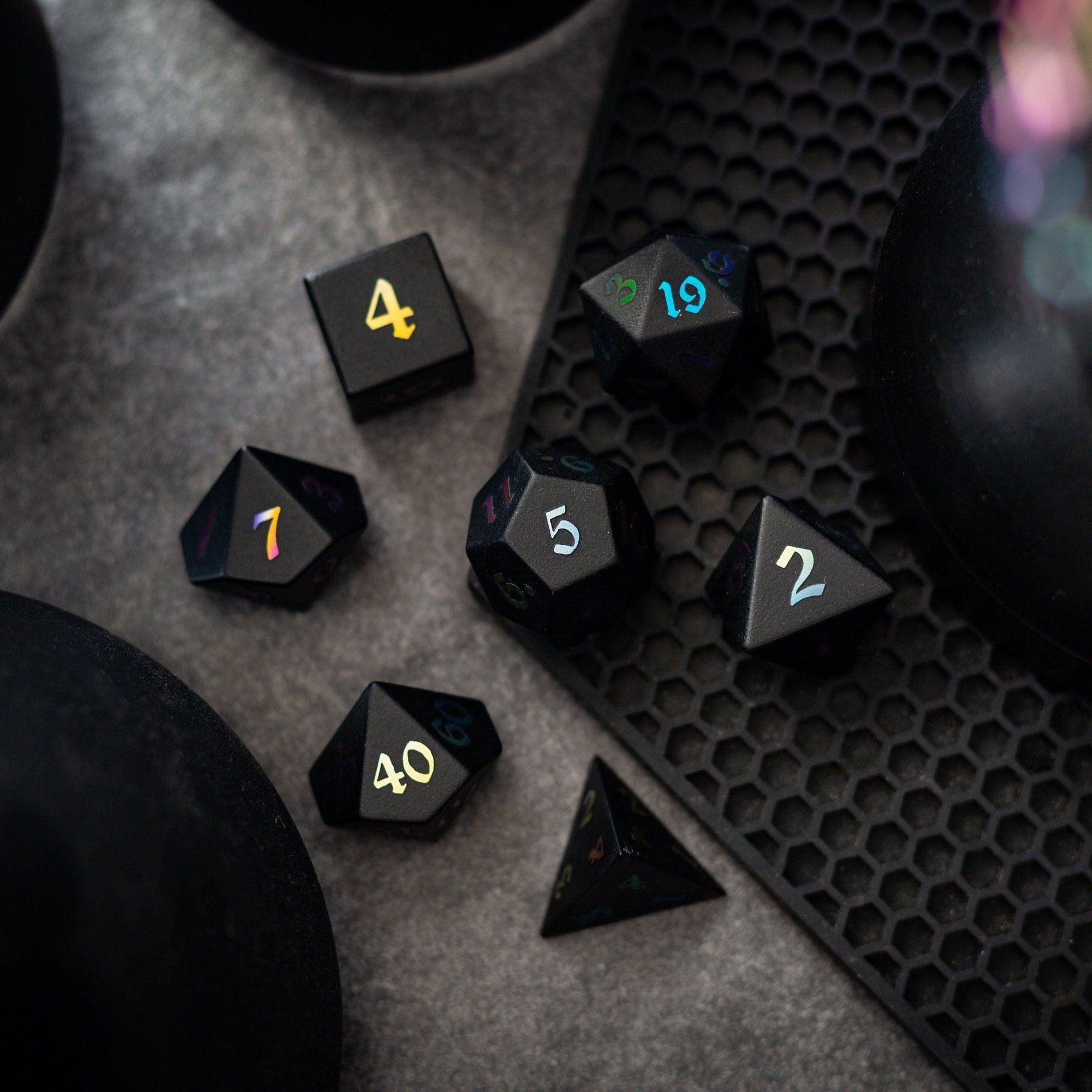
Leave a comment
This site is protected by hCaptcha and the hCaptcha Privacy Policy and Terms of Service apply.